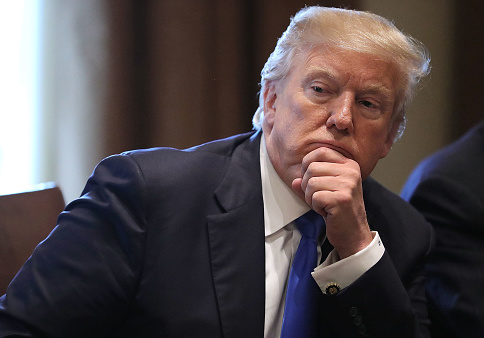Management attorneys and trade groups are petitioning the Trump administration to reverse President Obama's rule changes that drastically sped up the timeline of union elections.
The National Labor Relations Board, a top federal labor arbiter that oversees union election procedures and settles workplace disputes, is reviewing the so-called Ambush rules adopted in December 2014. The standing rules force employers to respond to a union petition within 8 business days and eliminated a 25-day waiting period in between the election process. Management-side attorneys say the dramatic increase in the timeline hurts the ability of companies to respond to union campaigns that in some cases have been years in the making.
"It deprives employers, especially small employers, of their due process rights," said Michael Lotito, a management-side attorney at Littler Mendelson. The initial gap in time is the most damaging for companies, many of which may not have access to counsel. Under the new rules, employers must respond to petition with their entire position statement within the first eight days—any issue not included in that initial document is considered waived.
"The current rules have some serious structural problems and these employers face enormous time pressure," Lotito said. "This is shocking for a small employer that has probably never dealt with a federal agency before. It is a major, major, major undertaking."
Unions have traditionally held an advantage in NLRB secret-ballot elections because they are unlikely to petition for an election they do not think they can win. Labor groups prevailed in 69 percent of union elections in 2017, on par with historic rates, though it is a sharp uptick from unions' 64 percent win rate in 2013, according to the NLRB. The election timeline, however, is moving at a much faster pace. The median wait-time fell from 38 days before the rules took effect to 23 days in 2017, a 40 percent decrease.
National Retail Federation spokesman David French said the Obama rules tilted the scales of procedure in the union's favor, depriving workers of the ability to be fully informed about the effects of unionization. He also objected to updates that force companies to give union officials personal information about employees, including their email addresses.
"This is one of the most unnecessary rules to come from the previous NLRB, and it is substantially undermining the principle of fair union elections. Workers have been denied the opportunity to hear from both sides of the debate and have lost their right to privacy," French said. "We urge the NLRB to rescind this rule or, at the very least, make significant changes to restore the basic rights of workers and employers in union elections."
Reversing the rule could deal another major blow to President Obama's legacy on labor issues. Republicans gained their first majority on the board in a decade in the closing months of 2017 and reversed a number of the Obama board's most controversial decisions, including overturning decisions to allow micro-units and give labor regulators oversight of employee handbooks. Obama vetoed Republican attempts to block the agency from implementing the new rules in 2015, saying the revisions were needed to "streamline a democratic process that allows American workers to freely choose to make their voices heard." The agency debuted the rules with a training seminar at the headquarters of Service Employees International Union Local 32BJ in March 2015.
Some opponents to the Obama-era guidelines emphasize that they do not see election procedures as cut-and-dry as some of the Trump board's other labor rulings. While labor watchdogs were happy to see the Republican members restore previous longstanding precedent that was tossed out by Obama appointees, many want to see the Trump board make reforms of their own to board procedure.
The new rules applied the quick timelines to union certification campaigns, but excluded elections to kick unions out of a workplace. The National Right to Work Legal Defense Foundation wants to see the board adopt reforms to ease procedures for decertifying union representation, saying the 2014 change "complicates the decertification process for individual decertification petitioners and makes it harder to file for an election." It also called on unions to hold regular recertification elections to give current employees a say in representation, as well as lift delay tactics unions use to prevent such votes from taking place.
"The current procedural requirements for filing those petitions are unduly burdensome on individual employees," the foundation said in a comment to the agency. "The reforms the Foundation proposes will advance the policy and purpose of the Act—employee free choice—by allowing employees full information and time to make representational decisions."
The board has received more than 6,500 comments on the election rules. There is no timeframe for when it will release a new rule, though advocates are hopeful reforms can be introduced in 2018.
